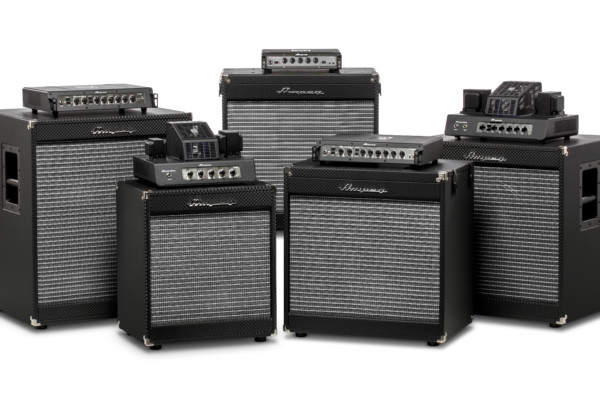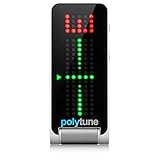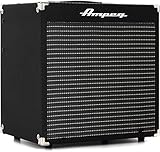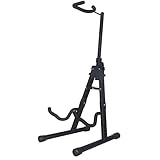As a bass player, you know that having the right gear is essential to your sound and performance. Whether you’re just starting out or you’ve been playing for years, there are certain pieces of equipment that every bassist needs. In this article, we’ll take a look at the essential gear every bass player should have in their rig. We’ll also provide reviews of some of our favorite products on the market. So whether you’re shopping for new gear or just curious about what’s out there, read on for the essential guide to the things every bass player should have!
Essential Things Every Bass Player Should Have
14 Essential Top Bass Guitar Accessories
When it comes to playing bass guitar, there are many accessories that you need in order to create the best possible sound and performance. Whether you’re heading out for a gig, preparing for a rehearsal, or practicing at home by yourself, you need to have all of the necessary equipment on hand.
For example, the first thing you’ll probably want is a good amp. Bass guitars often produce low-pitched sounds that need to be amplified before they can truly shine. Having an amp with customizable settings can help you fine-tune your sound so that it’s exactly how you want it.
In addition to an amplifier, bassists also need high-quality strings so that their fingers don’t get sore and numbed after hours of playing. And of course, you’ll need various other accessories like tuners, capos, and picks as well.
Whether you’re new to playing bass or are a seasoned veteran looking for the best equipment on the market, making sure that you have all of the necessary accessories is key to succeeding in your musical endeavors.
So be sure to invest in high-quality tools and get out there and show off your skills!
With that being said, let’s take a look at 14 bass guitar essentials.
Good Tuners
As a bass guitarist, having a good electronic tuner is absolutely essential. This tool helps you to quickly and accurately tune your bass, so that your instrument will always be in harmony with the rest of the band.
With modern technology, tuning your bass with a tuner is as simple as plugging it in to your device and turning it on. Special algorithms help to detect and display even minute fluctuations in pitch and timbre, ensuring that you are able to make any necessary adjustments swiftly and accurately.
Furthermore, a quality electronic tuner can also double as a metronome or tone generator, allowing you to get the most out of your practice sessions. Ultimately, by investing in a reliable electric tuner for your bass guitar, you can ensure that both you and your instrument are always ready to rock!
Bass picks
Having bass guitar picks is essential for every musician. These small plastic accessories are what you use to pluck the strings of your instrument, and they come in a wide variety of thicknesses and shapes depending on your playing style and preference.
While many players prefer to use their fingers to play the strings instead, having bass guitar picks allows you to achieve certain tones that are not possible with your bare hands.
In addition to having many extra bass guitar picks in your case, it is also important to keep spares in other places where you might need them. For example, it’s always a good idea to have some in your pocket or around your neck so that you can quickly switch between different sets without missing a beat.
Likewise, having backups in larger storage containers can be helpful if you know that you will be spending several hours practicing outdoors or at a music festival where they might not be easily accessible elsewhere. Overall, using and carrying bass guitar picks is essential for anyone who wants to get the most out of their musical abilities.
Spare bass guitar strings set
When playing the bass guitar, it is absolutely essential that you keep a set of spare strings on hand at all times. This is because strings break unexpectedly, especially when used heavily or over long periods of time. If your string breaks during a performance or practice session, it can lead to frustration and even disaster.
To make sure this doesn’t happen to you, it’s crucial that you always keep a spare set of strings in your bass guitar case. Not only will this ensure that you can quickly and easily fix any broken strings, but it will also save you from having to cancel performances or reschedule rehearsals.
Furthermore, by taking the time to change your strings regularly, you will be able to maintain the best sound quality possible for your bass guitar playing. So if you’re serious about your bass playing, don’t forget to keep a set of spare strings on hand – you never know when they might save the day!
Just remember that round wound strings are best for more aggressive and modern styles like rock, pop, slap bass & funk whilst flat wounds are best for jazz, walking bass and motown due to their more mellow tone.
Top String Winder
A bass string winder is a small, handheld tool that helps you to change your strings much more quickly. It consists of a handle and a spindle, onto which you thread the new string. To use it, simply insert the spindle into the tuning peg and turn the handle.
- ALL-IN-ONE BASS STRING WINDER TOOL – The Pro-Winder makes string changes quicker and easier than ever before with its built-in clippers, bridge pin puller and peg winder all rolled into one tool.
- MUST HAVE FOR EVERY BASS GUITAR CASE – This indispensable tool has been designed to fit comfortably in your hand and for use on virtually all bass guitars.
- BASS GUITAR WINDER – The bass peg winder fits onto the guitar tuning peg and rotates to help wind the bass strings making a quicker string change for your bass guitar.
- BUILT IN STRING CUTTER – With the hardened steel clippers on the Pro-Winder String Cutter you can cleanly cut through your old strings to remove them quicker and easier, and trim the excess off new strings after looping them through the tuning machines.
- INTEGRATED PIN REMOVER – Designed with acoustic bass guitarists in mind, the Pro-Winder has a built-in bridge pin puller. This makes removing stubborn pins simple without risking damage caused by pliers and other tools.
The spindle will wind the string around the peg, tightening it as it goes. This process can be repeated for all of the strings on your bass, making string changes a breeze. Many bass players choose to keep a string winder in their case at all times, in case they break a string during a gig or rehearsal.
That way, they can quickly and easily replace the broken string and get back to playing. So if you’re looking for a way to make string changes quicker and easier, pick up a bass string winder. You’ll be glad you did.
Top Gig Bag and Cases
When it comes to taking care of your bass guitar, having a good base case is essential. Not only will it help to keep your bass guitar in good condition, but it will also protect it from damage.
A base case is simply a sturdy, well-padded case that you can use to transport and store your bass guitar. When choosing a base case, be sure to select one that is specifically designed for bass guitars.
- Hybrid case design with ABS head and body impact panels
- Waterproof Sharkskin shell with industrial rubber sole and piping (PVC-free)
- Clip/Tuck strap system w/ chest harness for on-the-fly 1 or 2 shoulder carrying
- Specialized upper and lower gear pockets with built-in cable management
- Steel rivet reinforced handle and shoulder straps
These cases typically have a deeper body and thicker padding to accommodate the larger size of the instrument. In addition, be sure to choose a case with strong latches and handles that can withstand the weight of the bass guitar.
With a good base case, you can be confident that your bass guitar will be safe and sound, whether you’re on the road or at home.
Best metronomes
Bass guitarists know that an electronic metronome is an essential practice tool. It gives them the ability to set a tempo and maintain it while they play, which is essential for developing accuracy and precision in their playing.
It also helps them to develop a sense of timing and rhythm, both of which are essential for playing bass. Additionally, an electronic metronome allows bass guitarists to practice with a click track, which can be invaluable for developing their sense of time and rhythm.
Finally, an electronic metronome can help bass guitarists to keep track of their progress by providing them with a visual representation of their tempo. For all these reasons, an electronic metronome is an essential practice tool for bass guitarists.
Pedals and Pedal Board
Pedals are an important part of any bass player’s toolkit. They can be used to create a variety of different sounds, from gentle embellishments to full-on sonic assaults. By combining different pedals, bassists can create their own unique sonic fingerprint.
While some bassists prefer to keep their pedal collection small and simple, others opt for a more diverse range of options. Regardless of your approach, one thing that all pedal users can agree on is the importance of a good pedalboard. A pedalboard helps to keep your pedals organized and easy to transport.
It also provides a stable surface on which to mount your pedals, preventing them from slipping and moving around during use. By keeping your pedals on a board, you can ensure that they are always ready to use, whether you’re at home in the studio or on stage in front of a live audience.
- 🎸ISOLATED POWER SUPPLY:The pedal board is equipped with a completely isolated power supply, which is more convenient to use, eliminating the trouble of carrying an additional power supply,Just need to connect the pedalboard and pedals.
- 🎸INDEPENDENT SHORT CIRCUIT PROTECTION:includes 7 ways 9V 200mA, 1 way 12V 200mA, 1 way 18V 200mA, 1 way USB 5V 500mA.One output is short-circuited, other outputs can still work.The guitar pedals board power supply has a noise reduction function and direct current increases the stability during use.
- 🎸ALUMINIUM ALLOY MATERIAL:High-strength aluminum alloy integrated die-casting guitar effects pedal board,which is solid to hold and protect the pedals nicely and durable to use.
- 🎸PERFECT DETAILS DESIGN:Slight incline design more comfortable for you to step pedals on the board and the frosted surface offers no worries for scratches.Rubber feet make the pedal is quite stable.
- 🎸ALL IN SUITE ACCESSORIES:The whole piece of customized hook surface velcro and professional grade adhesive backed hook-and-loop for securing pedals. Coming with pedalboard carrying bag , guitar pedal cable,Adapter,40*1.2 Inch self adhesive hook loop tape,cable ties
Amps
As any bass player knows, an amplifier is a vitally important piece of gear. Not only does it amplify the sound of the bass, but it also allows the player to control the tone and volume of their instrument.
Amplifiers come in a variety of shapes and sizes, and each offers its own unique set of features. However, all amplifiers share one common goal: to make the bass sound as good as possible.
Cables
Bass players need to use jack cables in order to connect their amplifiers and effects pedals to their instruments. These audio cables are special because they are designed to carry low frequencies without introducing too much signal noise.
- 99.95% oxygen-free copper to resist corrosion
- Dual shielding and dual conductors provide durability and reliably clear tone
- Braided exterior jacket for flexible, tangle-resistant performance
- Roadworthy construction
- Limited lifetime warranty
In addition, bassists often rely on multiple effects pedals at once, so it is important to have a variety of different jacks on hand, especially if you plan on doing any live performance or touring.
This way, if something goes wrong, you can quickly swap out your malfunctioning jack for a working one, instead of having to stop the show or deal with the consequences of faulty equipment in the middle of a gig.
Ultimately, the bottom line is that all bassists should be sure to keep plenty of jacks on hand at all times, both for convenience and for peace of mind. After all, there’s nothing worse than having your music fall apart in front of an audience!
Power and batteries
Bass players rely on a wide range of electronic pedals to generate the texture and tone of their sound. These gear typically require a sizable amount of power, but bassists do not always get consistent and reliable power from the outlets in their surrounding environment.
To ensure reliable performance, bass players need to carry around a dedicated power supply that can provide clean, consistent power for all their pedals. This will ensure that they have the right voltage and amperage to drive their effects without any unwanted humming or other distortion.
Additionally, a quality power supply will give them peace of mind, knowing that they will always have enough juice to drive all the pedals they need for those epic live performances. If you’re a bass player serious about your sound and your performance, then be sure to invest in a high-quality power supply – it’s an essential piece of gear!
Bass players, if you play an active bass guitar, it is essential that you carry spare batteries with you at all times. Active bass guitars rely on battery power to function properly, so having a backup battery on hand can help ensure that your performance is not disrupted by a dead battery.
Not only will backup batteries help keep your bass sounding great throughout your performance, but it can also help to reduce the risk of damage to your instrument. Batteries are notoriously unreliable, and they often fail without any warning.
So if you want to protect your valuable equipment and make sure that you sound your best onstage, carrying spare batteries with you at all times is the key. So bass players, when playing an active instrument, remember: always have backups ready!
Your performance and your equipment will thank you.
Bass Guitar straps
Bass guitar straps are an essential accessory for anyone who plays the bass guitar. These straps provide support and stability, helping to prevent awkward postures that increase the risk of injury.
Moreover, thicker and sturdier straps will do a better job of supporting the weight of your instrument, which is especially important if you play standing up. That said, it is also important to consider comfort when choosing a new strap.
- 4 1/2 inch garment leather bass strap with foam padding and garment leather backing.
- Adjustable from 36 inches to 52 inches.
- Also available in extra long (XL), which adds 12 inches to overall length.
A bass guitar strap that is too thin or stretches out easily can cause pain and discomfort over time. In order to avoid these problems and ensure safety while you practice or perform, it is best to choose a bass guitar strap that is both comfortable and supportive.
With the right strap in hand, you can focus on your playing without worry!
Strap Lock
Strap locks are an essential part of any bass guitar strap. These small pieces of hardware are used to attach the end of the strap to the instrument itself, and they provide an extra level of security that helps to prevent damage from falls or other accidents.
In particular, strap locks reduce the risk of the strap falling off completely and causing serious harm to both the bass and the player. This is because they fasten tightly onto both parts of the strap, ensuring that there is no chance for slippage or movement.
As a result, not only does a strap lock system help to keep your instrument safe, but it also gives you peace of mind as you perform. Whether you’re on stage in front of hundreds of people or just jamming with friends at home, buckle up with a good set of strap locks!
- One set of 2 Fender Strap Locks with chrome strap buttons, locks, wood mounting screws, and black or white felt washer pads to protect the guitar finish
- Secure Fender Guitar Strap Lock – A safer way to make sure the guitar doesn’t come off the strap and get damaged; no more dropping your guitar during practice or a performance
- Versatile Security Straps – Put this Fender strap lock on any guitar and strap; the interchangeable design makes it easy to install, attach, and remove your guitar straps, while the stylish chrome finish helps all musicians look and play the part
- Easy Install – Take off buttons on guitar and replace with strap lock buttons; simply place screw with washer through the button and felt; wax the end of the screw and place in the guitar; use a manual screwdriver to insert strap lock until snug
- 1 Year Limited Warranty: Fender parts and accessories are designed for players and built with unmatched quality—which is why Fender warrants this part to be free from defects for one (1) year from the date of original purchase
Bass Guitar Stand
Keeping your bass guitar in a stand is the best way to protect it from falling and getting damaged. A stand provides a firm, stable base for your instrument, reducing the risk of slips or falls that can lead to damage on the fretboard, headstock, or body.
- Fit all kinds of guitars and bass.
- EVA is used on all the contact points between the stand and your instrument to protect its finish.
- Folds flat for convenient transport and storage.
- Three contact points to safe guard your guitar.
- Keep long time use.
By storing your instrument in a stand rather than on a flat surface like a desk or bookcase, you minimize these risks and keep your bass guitar safe. Ultimately, taking proper care of your instrument by using a stand is one of the best ways to ensure that you will be able to enjoy playing it for many years to come.
Bass Guitar Maintenance Kit
Having a bass guitar maintenance kit is essential for anyone who wants to take good care of their instrument. A quality kit will provide you with all the tools you need to keep your bass in top condition, from basic cleaning supplies to more advanced tools like screwdrivers and tuning wrenches.
Furthermore, a good maintenance kit will also include specialized products like string cleaners and fretboard oils that are specifically designed for use on a bass guitar. Altogether, having a complete bass guitar maintenance kit gives you everything you need to protect your valuable instrument and keep it sounding great for years to come.
So if you want to make sure your bass stays in top shape, be sure to invest in a reliable maintenance kit today!
FAQ’s
What does every bass player need?
There are several key accessories that every bass player needs in order to create great-sounding music. First and foremost, a good quality case is essential for protecting the bass guitar against damage.
Whether you’re at home, on the road, or playing in a busy club, a case will help to prevent dings, dents, and scratches. In addition to a case, it’s also important to have an amp that has plenty of power and clear sound. This will allow you to really hear and control your tone when playing live or recording in the studio.
Another must-have accessory for bass players is a good set of spare strings. Strings can wear out over time from heavy use, so having backup strings on hand will ensure that your instrument stays in tune at all times. Another crucial accessory for bass players is an electronic tuner. This handy device makes it easy to quickly tune your instrument in less than a minute, even if you’re on stage or jamming with other musicians.
Finally, the last essential accessory for any bass player is a quality strap. A good strap will keep you comfortable while performing those low riffs and allow you to move freely while playing. With all of these key accessories by your side,
What do I need to gig with bass?
A bass amp, a bass guitar, a stand, some cables, an electronic tuner, and a bass strap would be the bare minimum.
Do I need bass pedals?
Bass players are an essential part of any band or ensemble. Whether playing funk, rock, blues, or jazz, the bass adds a layer of complexity and nuance to the music that simply cannot be replicated by other instruments. And while most bass players may not need to rely on auxiliary effects like a tuner pedal or volume pedal to play gigs, these pedals can be useful tools to help any musician get their sound just right.
For starters, having a tuner pedal can help ensure that your instrument is always properly tuned, no matter how extreme the conditions or settings may be. Having this consistency will enable you to focus on the music rather than wasting time constantly fine-tuning your bass between songs.
In addition, using a volume pedal allows you to control exactly how much amplification you need while playing each note. Being able to adjust your level quickly and easily can help prevent feedback and distortion when playing in different settings, from large stages and speakers to small clubs with minimal amplification.
So if you’re a bassist looking for an extra edge in your performances, investing in a few key accessories like a tuner pedal and volume pedal may be just what you need to take your sound to the next level. Regardless of whether they’re technically
What effects do bass players use?
Most use compression, some kind of fuzz, some kind of distortion, and an octave pedal. However, the ways in which all these effects are used can vary from being very obvious to extremely subtle.
What pedal should every bass player have?
If there was only pedal every bass player could have then most would choose either a tuning pedal or a preamp pedal to help give them a great tone.
Do bassists use pedals?
Bass guitarists have been using pedals for many years now, with this tool becoming an essential part of most bass players’ repertoire. The purpose of pedals is to give the musician greater control over their sound and texture, and this is especially useful in live settings where the audience can’t see exactly what the musician is doing.
While electric guitarists are often much more overt in their use of pedal effects, bassists tend to be more subtle. Many people may not even notice that a bass player is using pedals at all, with the tone being blended so seamlessly into the music.
This means that while electric guitarists are seen as being flashy and “showy”, bass players are able to create a rich sonic experience for the listener by crafting complex bass lines that subtly interact with complex pedal effects.
As such, there is much more going on in a bassist’s music than most listeners realize, making these musicians truly masters of their craft.
Are clip-on tuners worth it?
Yes, they are. They provide a very accurate way to tune but they can also be used silently which is a huge bonus for live performance.
Lastly, they are also much cheaper than tuning pedals and very easy to transport!
Does a bass need an amp?
Bass guitar players use an amp for a variety of reasons.
First, the electric bass is not as loud as other instruments, so the amp helps to amplify the sound.
Second, the amp provides a way to shape the sound of the bass, by adding effects such as reverb or distortion.
Third, the amp can be used to create a variety of different sounds, such as a booming bass line or a gentle melodic accompaniment.
Finally, the amp can be used to practice without disturbing others. By plugging into an amp, bass guitar players can create the perfect sound for any situation.
How do you get a cool bass tone?
Whilst things like preamp pedals, EQ pedals and compression can play a role in getting a great bass tone, nothing will ever replace having good technique and being able to produce a good tone from the bass with your own hands.
Think of pedals, preamps, EQ and compression and tools to supplement and enhance the sound you create with your own hands which is far more important than any pedal will ever be in shaping your overall sound.
Are bass guitarists in demand?
Bass guitarists have long been an integral part of any band or musical group. The deep, low sounds they produce help to provide a textural contrast to other instruments, allowing them to make more nuanced compositions.
In recent years, however, the demand for bass guitarists has increased significantly as more people choose not to take up the instrument.
Fewer bass players means that there are fewer people who can fill important roles within bands and other musical groups, creating a real shortage of talented professionals in this field.
At the same time, many musicians now prefer to play a wide range of different styles rather than sticking with one genre throughout their careers.
This has also increased the demand for highly skilled bass players who are capable of seamlessly integrating themselves into multiple different styles and performing situations.
In short, those with serious skill and experience on the bass guitar are in high demand because fewer people are choosing to take up this essential instrument. So if you’re thinking about pursuing a career as a bass player, now is definitely the time!
Do bass players use picks?
Absolutely they do! If you’re interested in learning about bass pick technique then you should read this article on pick bass technique!




























Leave a Reply